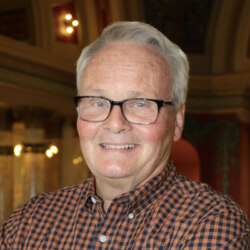George Sutherland: A Model Justice
"For the sake of our liberties, we could use more judges like him both in Montana and in Washington, D.C."
“We want a Supreme Court,” declared President Franklin Roosevelt in March 1937, “which will do justice under the Constitution—not over it. In our courts, we want a government of laws and not of men.”
He really didn’t mean it. A month earlier, the very same FDR announced his plan to “pack” the Supreme Court with enough additional justices to accomplish precisely the opposite. FDR was not much interested in justices who upheld the Constitution. He preferred one that would meekly roll over for his New Deal, which ended up prolonging the Great Depression by seven years.
Presidents usually don’t get to nominate more than two Supreme Court justices in the space of a four-year term. Donald Trump’s three was a rarity. But Warren G. Harding named no less than four, and Harding was President for just 2-1/2 years before his untimely death in 1923. One of those Harding nominees was himself a former President—William Howard Taft.
Another Harding pick was Utah’s George Sutherland, among the most steadfast defenders of liberty under the Constitution ever to grace the Court. Along with Justices Willis Van Devanter, James Clark McReynolds, and another Harding appointee, Pierce Butler, Sutherland rebuked the worst of Roosevelt’s New Deal in one articulate opinion after another. For the sake of our liberties, we could use more judges like him both in Montana and in Washington, D.C.
In a 1917 speech, years before George Sutherland joined the Court and while high-tax Woodrow Wilson was in the White House, he declared, “Today, as always, eternal vigilance is the price of liberty…The liberty to do honest and profitable business — the liberty to seek honest and remunerative investment — are in peril.”
Sutherland understood that liberty is joined at the hip with character, which he defined in part as “an unhesitating rejection of an impulse to do wrong.” In many ways, liberty and character are two sides of the same coin. One won’t last without the other.
No country in history lost its character and kept its liberties. If a people allow disrespect for rights, property and life to take hold in the land, their days as a free people are numbered. If we let our politicians get away with endless lies and deceptions, to buy votes with other people’s money, or to intimidate others into silence, the ash heap of history awaits us around the corner. George Sutherland warned us with this question:
“Do the people of this land desire to preserve those liberties so carefully protected by the First Amendment: liberty of religious worship, freedom of speech and of the press, and the right as freemen peaceably to assemble and petition their government for a redress of grievances? If so, let them withstand all beginnings of encroachment. For the saddest epitaph which can be carved in memory of a vanished liberty is that it was lost because its possessors failed to stretch forth a saving hand while yet there was time.”
George Sutherland never succumbed to the temptations of power and ego, nor did he discover vast new constitutional duties for the Washington establishment to inflict on the people. He took the oath to defend the supreme law of the land quite seriously, a notion that seems sadly quaint in an age where sweeping judicial activism is a mainstream law-school principle.
*****
Lawrence W. Reed writes a monthly column for the Frontier Institute in Helena, on whose board he serves. He is president emeritus of the Foundation for Economic Education and blogs at www.lawrencewreed.com.
